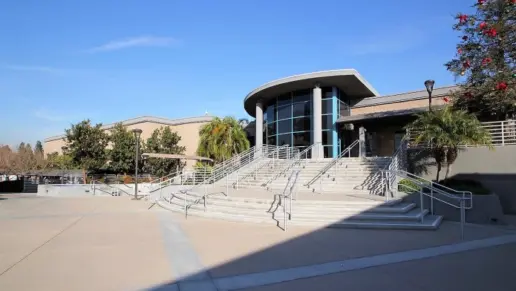About Center for Discovery – Beverly Hills
Center for Discovery Beverly Hills is a mental and behavioral health care center for youth and adults with eating disorders and/or co-occurring conditions in Beverly Hills, California. They provide inpatient programs (IP), partial hospitalization programs (PHP), intensive outpatient programs (IOP), and aftercare support for teenagers, the LGBTQ+ community, young adults, trauma survivors, and military Veterans. Online support and telehealth care are also available. Services are available in English, Arabic, Chinese, Dutch, French, German, Italian, Portuguese, Russian, and Spanish.
Center for Discovery Beverly Hills offers a range of inpatient treatment programs. Clients receive a personalized evaluation and care plan. Clients experiencing severe chemical dependency may be referred to an inpatient, high-intensity alcohol and drug rehab specializing in dual diagnosis care, if needed. Clients also engage in individual and group therapy, adventure therapy, art and music therapy, equine therapy, yoga and meditation, and sound baths. The center utilizes various approaches including acceptance commitment therapy (ACT), cognitive behavioral therapy (CBT), dialectical behavior therapy (DBT), and exposure response prevention (ERP). Medication management and family resources are also provided. Inpatient residential treatment and housing, school support programs, and customized dietary programs are available.
Their partial hospitalization program (PHP) is designed for clients requiring high-level supervision and support. Therapy sessions are conducted five days per week, with each session lasting six hours. PHP includes individual and group therapy, medication management assistance, peer support, and life-skills development. PHP takes place outside the inpatient facility as clients take steps toward independence.
Their intensive outpatient program (IOP) consists of treatment for up to three hours per session, for as many as five days per week. Sessions may be in-person or through telehealth. Clients participate in individual and group therapy, multifamily therapy, and a focus on a transition into safe, everyday living. Resources for families are also available, including school support programs for teenagers and children.
Upon completion of their outpatient program, clients receive continuous, free aftercare via alumni and peer support groups and online services available 24/7. Weekly in-person support meetings are available. Referrals may be available for additional treatment at outside facilities.
Center for Discovery Beverly Hills is accredited by The Joint Commission.
Center for Discovery Beverly Hills is in-network with many insurance providers, including Beacon Health Strategies, Blue Cross Blue Shield, Carefirst, Cigna, HealthNet, Humana, Kaiser Permanente, Sharp, TRICARE, and WellPoint. Please check with your insurance provider for specific details concerning out-of-network coverage.
Latest Reviews
Rehab Score
Gallery
Accepted Insurance



Other Forms of Payment
Private insurance refers to any kind of healthcare coverage that isn't from the state or federal government. This includes individual and family plans offered by an employer or purchased from the Insurance Marketplace. Every plan will have different requirements and out of pocket costs so be sure to get the full details before you start treatment.
Self-pay involves paying for treatment out of your own pocket. You can use savings or credit, get a personal loan, or receive help from family and friends to fund your treatment. If you don't have insurance or your insurance plan doesn't cover a specific program, self-pay can help ensure you still get the care you need.
Military members, veterans, and eligible dependents have access to specific insurance programs that help them get the care they need. TRICARE and VA insurance can help you access low cost or no cost addiction and mental health treatment. Programs that accept military insurance often have targeted treatment focused on the unique challenges military members, veterans, and their families face.
Addiction Treatments
Levels of Care
Treatments
Mental health rehabs focus on helping individuals recover from mental illnesses like bipolar disorder, clinical depression, anxiety disorders, schizophrenia, and more. Mental health professionals at these facilities are trained to understand and treat mental health issues, both in individual and group settings.
Programs



Clinical Services
Cognitive Behavioral Therapy (CBT) is a therapy modality that focuses on the relationship between one's thoughts, feelings, and behaviors. It is used to establish and allow for healthy responses to thoughts and feelings (instead of unhealthy responses, like using drugs or alcohol). CBT has been proven effective for recovering addicts of all kinds, and is used to strengthen a patient's own self-awareness and ability to self-regulate. CBT allows individuals to monitor their own emotional state, become more adept at communicating with others, and manage stress without needing to engage in substance abuse.
Dialectical Behavior Therapy (DBT) is a modified form of Cognitive Behavioral Therapy (CBT), a treatment designed to help people understand and ultimately affect the relationship between their thoughts, feelings, and behaviors. DBT is often used for individuals who struggle with self-harm behaviors, such as self-mutilation (cutting) and suicidal thoughts, urges, or attempts. It has been proven clinically effective for those who struggle with out-of-control emotions and mental health illnesses like Borderline Personality Disorder.
During group therapy, men and women learn to express their emotions openly in a non judgmental setting. This helps you process your feelings and reduces feelings of social isolation that are often associated with addiction.
Individual therapy for drug addiction includes a customized treatment plan that considers your history and life circumstances. During your therapy sessions, the therapist helps you uncover underlying issues and triggers for addictive behavior that support a holistic approach to recovery.
For clients who are struggling with ambivalence toward change, motivational interviewing in California can help strengthen their commitment to change. Using a conversational method, the therapist helps you explore your motivations and empowers you to make the changes you desire.
Trauma therapy is a structured approach used by therapists to help you heal from a past traumatic event. Your therapist works with you to identify the traumatic memory and process the information so you experience emotional healing and a sense of safety and stability.
The goal of couples therapy in California is to strengthen the couple's relationship. The therapist may take one or more approaches to counseling which may include the Gottman method, emotionally focused therapy, behavioral therapy, and psychodynamic couple's therapy.
EMDR is a therapeutic modality originally developed to help process trauma. In an EMDR session, a patient is prompted to undergo eye movements that mimic those of REM sleep. This is accomplished by watching a therapist's finger move back and forth across, or following a bar of light. The goal is repetitive sets of eye movements that help the brain reprocess memory, which can significantly reduce the intensity of remembered traumatic incidents. Associated memories can heal simultaneously, leaving patients significantly calmer, more stable, and more emotionally relaxed.
Family therapy offers a platform for members to have an open dialogue about the challenges that addiction has placed on the family unit. Through guided sessions, therapists can help families develop healthy communication skills and address unresolved issues. By working together toward a common goal, they help to support their loved one's sobriety.
Amenities
-
Yoga Studio
-
Residential Setting
-
Private Rooms
Accreditations

The Joint Commission, formerly known as JCAHO, is a nonprofit organization that accredits rehab organizations and programs. Founded in 1951, the Joint Commision's mission is to improve the quality of patient care and demonstrating the quality of patient care.
Joint Commission Accreditation: Yes
Contact Information
8383 Wilshire Blvd
#650
Beverly Hills, CA 90211













